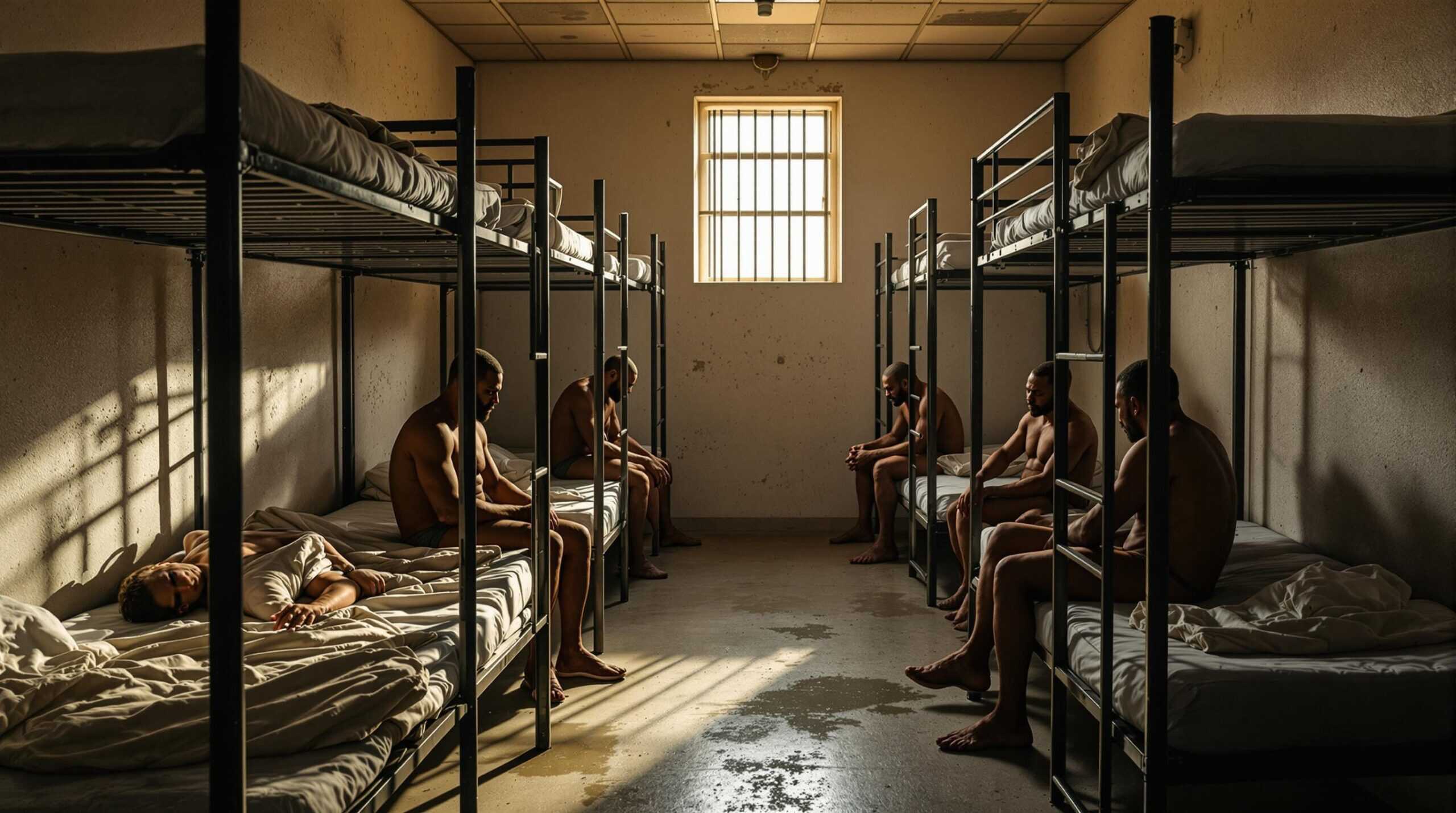Prison overcrowding in Georgia is violating the Eighth Amendment, which protects against cruel and unusual punishment. Overcrowded facilities lead to unsafe conditions, delays in medical care, unsanitary environments, and insufficient resources, all of which compromise inmates’ basic dignity and well-being. Legal rulings like Brown v. Plata (2011) and Farmer v. Brennan (1994) highlight how these conditions fail to meet constitutional standards.
Key Issues:
- Overcrowding Consequences: Cramped spaces, delays in healthcare, and unsafe environments.
- Legal Violations: Inadequate living conditions breach constitutional protections.
- Georgia’s Crisis: A 2024 DOJ report shows many prisons operating beyond capacity.
Solutions:
- Policy Reforms: Adjust sentencing laws to reduce prison populations.
- Facility Improvements: Expand capacity and modernize existing prisons.
- Rehabilitation Programs: Offer alternatives to incarceration for non-violent offenders.
Immediate action is needed to ensure humane treatment and align prison conditions with constitutional standards.
Legal Standards for Prison Overcrowding Cases
Major Court Decisions and Legal Tests
In Rhodes v. Chapman (1981), the court ruled that inmates must demonstrate that overcrowding leads to conditions causing "wanton and unnecessary infliction of pain" or conditions that are "grossly disproportionate" to their offenses.
Later, Farmer v. Brennan (1994) introduced the "deliberate indifference" standard. This required proof that overcrowding created a serious risk of harm and that officials knowingly ignored this risk.
In Wilson v. Seiter (1991), the court added further requirements, stating that inmates must show both a measurable loss of basic human needs and clear evidence of indifference from prison officials. These rulings collectively shaped how courts analyze prison conditions.
How Courts Evaluate Prison Conditions
Courts look at several factors when determining if overcrowding violates legal standards, including:
- Space per inmate: The amount of living space available.
- Basic services: Access to essentials like medical care, sanitation, and food.
- Safety measures: Staff-to-inmate ratios, incident reports, and emergency protocols.
- Duration: How long inmates endure overcrowded conditions.
- Physical impact: Documented health problems and related risks.
The Brown v. Plata (2011) decision highlighted how overlapping issues in overcrowded prisons can severely limit access to critical services. Courts now apply the "contemporary standards of decency" test, which requires prisons to meet evolving societal expectations for humane treatment. This includes providing enough personal space, access to hygiene facilities, protection from preventable health risks, and reasonable medical care.
When issuing remedies, courts balance immediate actions with long-term systemic changes. Intervention typically occurs only when there’s clear evidence that overcrowding denies inmates the basic necessities of civilized life.
Current State of Georgia Prison Overcrowding
Findings from the 2024 Department of Justice Report

The 2024 Department of Justice (DOJ) investigation uncovered that many prisons in Georgia are operating well beyond their intended capacity. Overcrowding has resulted in cramped quarters, delays in medical care, and inadequate staffing levels. This combination has created unsafe conditions and negatively impacted the well-being of inmates.
Impact of Overcrowding on Inmates
Even small delays in care or restricted living spaces can violate constitutional standards, according to legal benchmarks. Overcrowding poses serious risks to inmates’ physical and mental health. Tight quarters and delayed access to healthcare increase health issues, while limited resources hinder sanitation and essential services. Advocacy group Georgia Prisoners’ Speak has emphasized the urgent need for changes to ensure prison conditions align with constitutional requirements and safeguard inmate welfare.
sbb-itb-7858f51
Solutions to Prison Overcrowding
Current Advocacy Efforts
Georgia Prisoners’ Speak (GPS) focuses on exposing the realities of overcrowded prisons in Georgia. By giving inmates a platform to share their experiences, GPS raises awareness and sparks conversations about the conditions inside these facilities. The group also works with prison administrators, lawmakers, and community leaders to address constitutional concerns. Additionally, GPS provides families and citizens with resources to reach out to government representatives about these issues. These efforts have played a key role in pushing for legal and policy reforms.
Legal and Policy Changes
Advocates for reform suggest several changes to ease overcrowding while ensuring public safety. These include revisiting sentencing policies, improving prison facilities, and expanding access to rehabilitation programs. Achieving meaningful change will require a combination of immediate actions and ongoing reforms, supported by regular oversight and collaboration among all stakeholders.
Brown v. Plata: Oral Argument – November 30, 2010
Next Steps for Georgia Prison Reform
Addressing the documented issues in Georgia’s prison system requires immediate and focused action.
The Georgia Department of Corrections must take steps to tackle overcrowding and improve conditions. This includes revisiting sentencing guidelines and expanding alternative sentencing options for non-violent offenders. These changes aim to reduce the number of individuals in prisons while addressing the constitutional concerns raised.
Long-term reform will require legislative efforts. Key actions include:
- Legislative Changes: Adjust sentencing laws, including mandatory minimums, and allocate more funding to facilities.
- Administrative Improvements: Provide better staff training and enhance oversight mechanisms.
- Facility Upgrades: Modernize existing prisons and increase capacity where necessary.
- Rehabilitation Programs: Expand educational and vocational opportunities to help reduce repeat offenses.
The organization Georgia Prisoners’ Speak plays a crucial role by documenting conditions and highlighting areas in need of reform. Their work keeps attention on constitutional violations and helps guide priorities for change.
Collaboration is essential. Advocacy groups, correctional leaders, and legislators must work together to ensure reforms are effective. Ongoing monitoring will be key to maintaining progress while balancing public safety with constitutional obligations.
